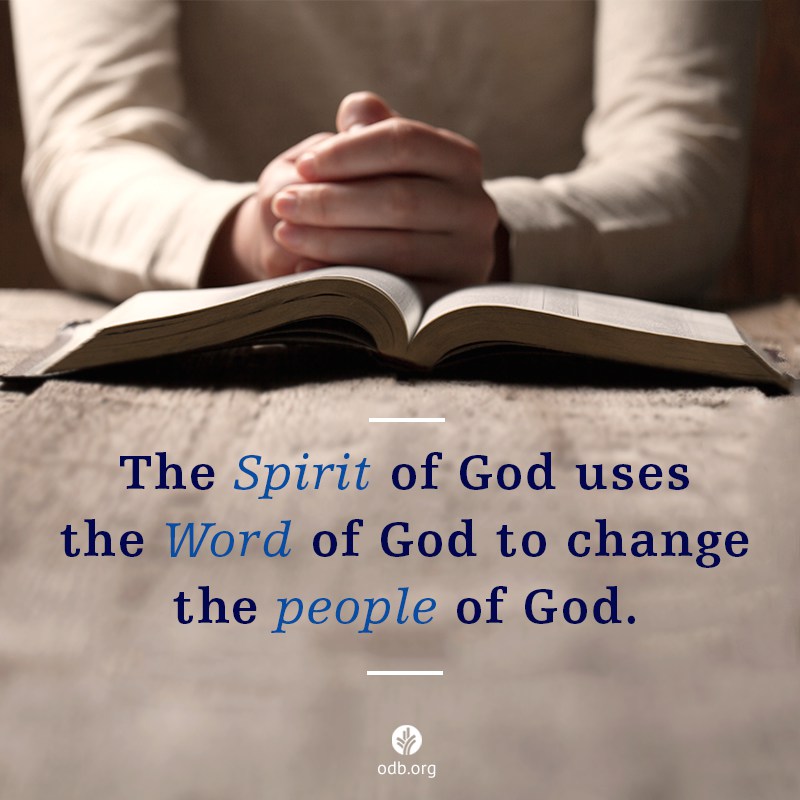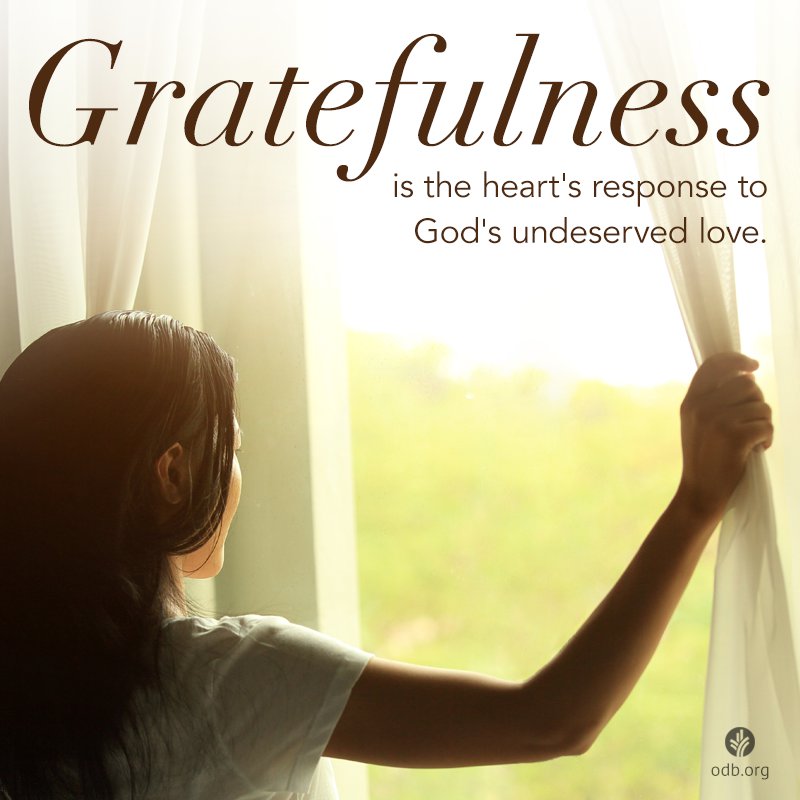
Why Me?
Ruth was a foreigner. She was a widow. She was poor. In many parts of the world today she would be considered a nobody—someone whose future doesn’t hold any hope.
However, Ruth found favor in the eyes of a relative of her deceased husband, a rich man and the owner of the fields where she chose to ask for permission to glean grain. In response to his kindness, Ruth asked, “What have I done to deserve such kindness? . . . I am only a foreigner” (Ruth 2:10 nlt).
Boaz, the good man who showed Ruth such compassion, answered her truthfully. He had heard about her good deeds toward her mother-in-law, Naomi, and how she chose to leave her country and follow Naomi’s God. Boaz prayed that God, "under whose wings" she had come for refuge, would bless her (1:16; 2:11-12; see Ps. 91:4). As her kinsman redeemer (3:9), when Boaz married Ruth he became her protector and part of the answer to his prayer.
Like Ruth, we were foreigners and far from God. We may wonder why God would choose to love us when we are so undeserving. The answer is not in us, but in Him. “God showed his great love for us by sending Christ to die for us while we were still sinners” (Rom. 5:8 nlt). Christ has become our Redeemer. When we come to Him in salvation, we are under His protective wings.
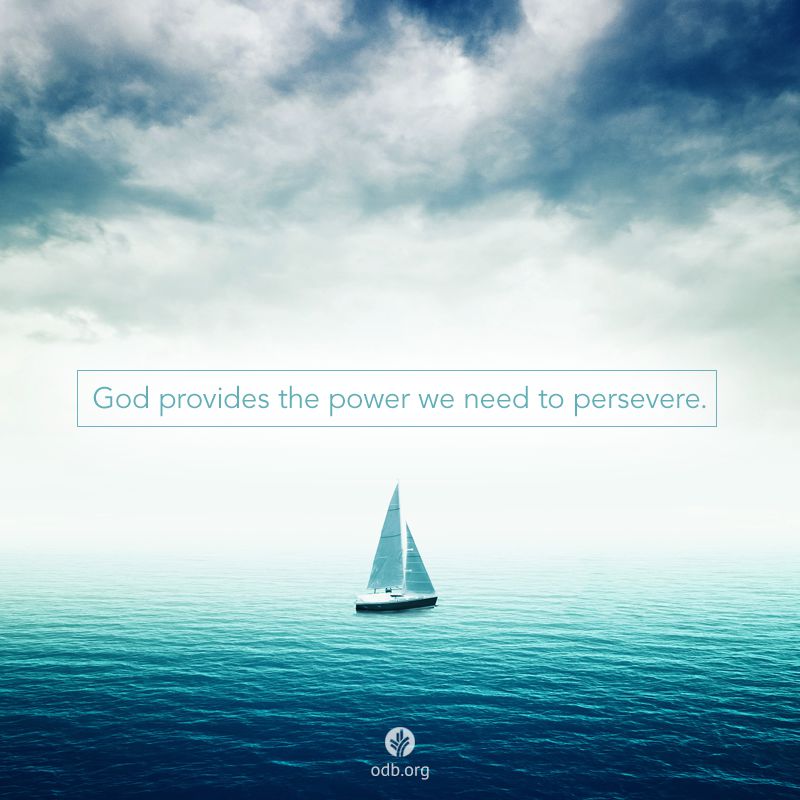
Paddling Home
I like Reepicheep, C. S. Lewis’ tough little talking mouse in the Chronicles of Narnia series. Determined to reach the “utter East” and join the great lion Aslan [symbolic of Christ], Reepicheep declares his resolve: “While I may, I sail East in Dawn Treader. When she fails me, I row East in my coracle [small boat]. When that sinks, I shall paddle East with my four paws. Then, when I can swim no longer, if I have not yet reached Aslan’s Country, there shall I sink with my nose to the sunrise.”
Paul put it another way: “I press on toward the goal" (Phil. 3:14). His goal was to be like Jesus. Nothing else mattered. He admitted that he had much ground to cover but he would not give up until he attained that to which Jesus had called him.
None of us are what we should be, but we can, like the apostle, press and pray toward that goal. Like Paul we will always say, “I have not yet arrived." Nevertheless, despite weakness, failure, and weariness we must press on (v.12). But everything depends on God. Without Him we can do nothing!
God is with you, calling you onward. Keep paddling!
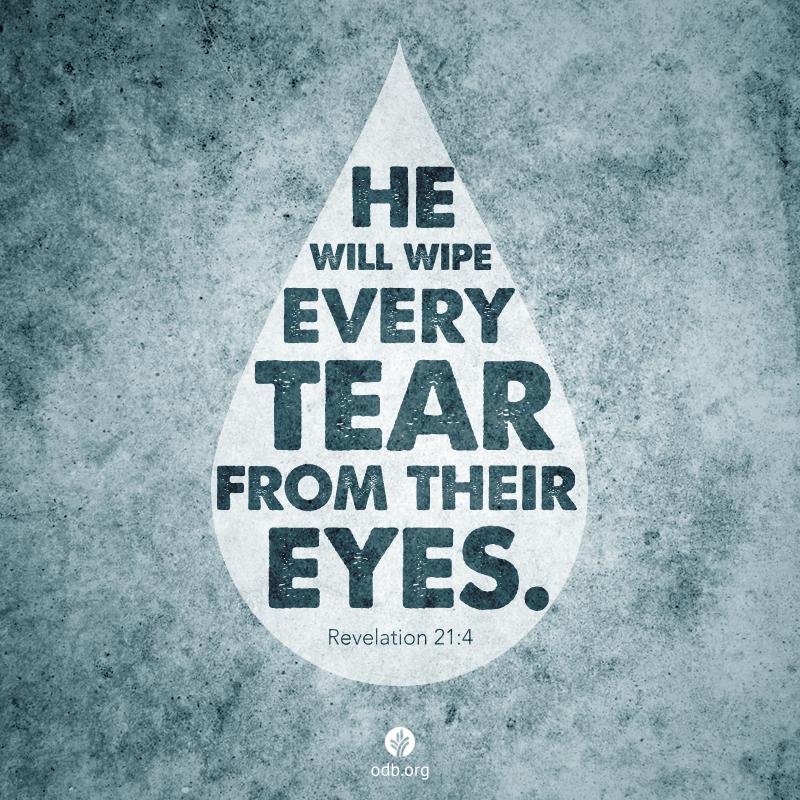
God's Dwelling Place
James Oglethorpe (1696–1785) was a British general and member of Parliament who had a vision for a great city. Charged with settling the state of Georgia in North America, he planned the city of Savannah according to that vision. He designed a series of squares, each having a green space and designated areas for churches and shops, with the rest reserved for housing. The visionary thinking of Oglethorpe is seen today in a beautiful, well-organized city that is considered a jewel of the American South.
In Revelation 21, John received a vision of a different city—the New Jerusalem. What he said of this city was less about its design and more about the character of who was there. When John described our eternal home, he wrote, “I heard a loud voice from the throne, saying, ‘Look! God’s dwelling place is now among the people, and he will dwell with them’” (v.3). And because of who was there—God Himself—this dwelling place would be notable for what was not there. Quoting from Isaiah 25:8, John wrote, “He will wipe every tear from their eyes. There will be no more death” (v. 4).
No more death! Nor will there be any more “mourning or crying or pain.” All our sorrow will be replaced by the wonderful, healing presence of the God of the universe. This is the home Jesus is preparing for all who turn to Him for forgiveness.
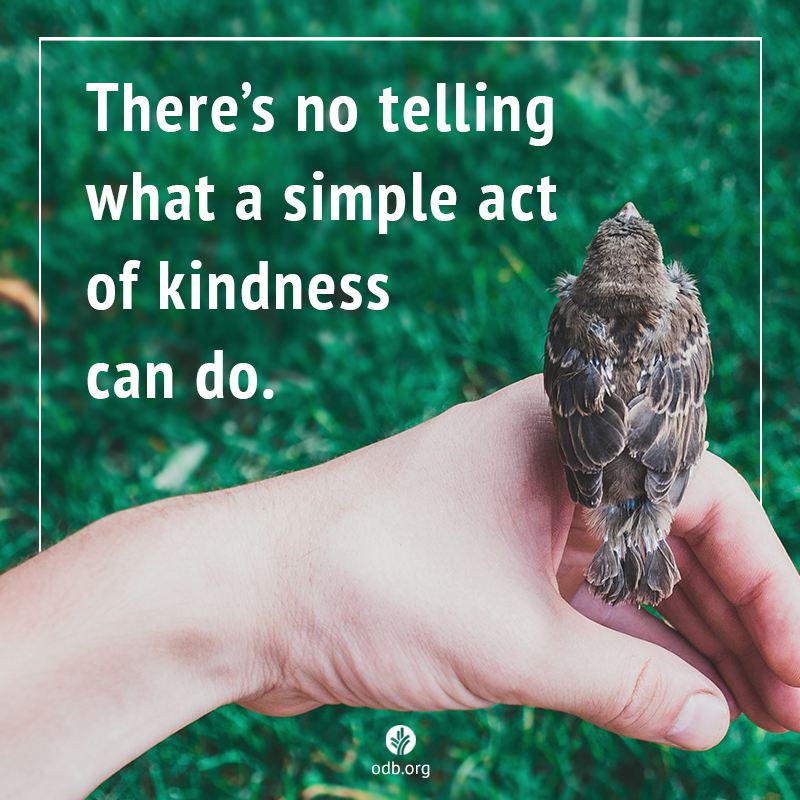
Chili Peppers
“My mother gave us chili peppers before we went to bed,” said Samuel, recalling his difficult childhood in sub-Saharan Africa. “We drank water to cool our mouths, and then we would feel full.” He added, “It did not work well.”
Government upheaval had forced Samuel’s father to flee for his life, leaving their mother as the family’s sole provider. Then his brother contracted sickle cell anemia, and they couldn’t afford medical care. Their mother took them to church, but it didn’t mean much to Sam. How could God allow our family to suffer like this? he wondered.
Then one day a man learned about their plight. He got the essential medicine and brought it to them. “On Sunday we will go to this man’s church,” his mother announced. Right away Sam sensed something different about this church. They celebrated their relationship with Jesus by living His love.
That was three decades ago. Today in this part of the world, Sam has started more than 20 churches, a large school, and a home for orphans. He’s continuing the legacy of true religion taught by James, the brother of Jesus, who urged us not to “merely listen to the word” but to “do what it says” (James 1:22). “Religion that God our Father accepts as pure and faultless is this: to look after orphans and widows in their distress” (v. 27).
There’s no telling what a simple act of kindness done in Jesus’ name can do.
